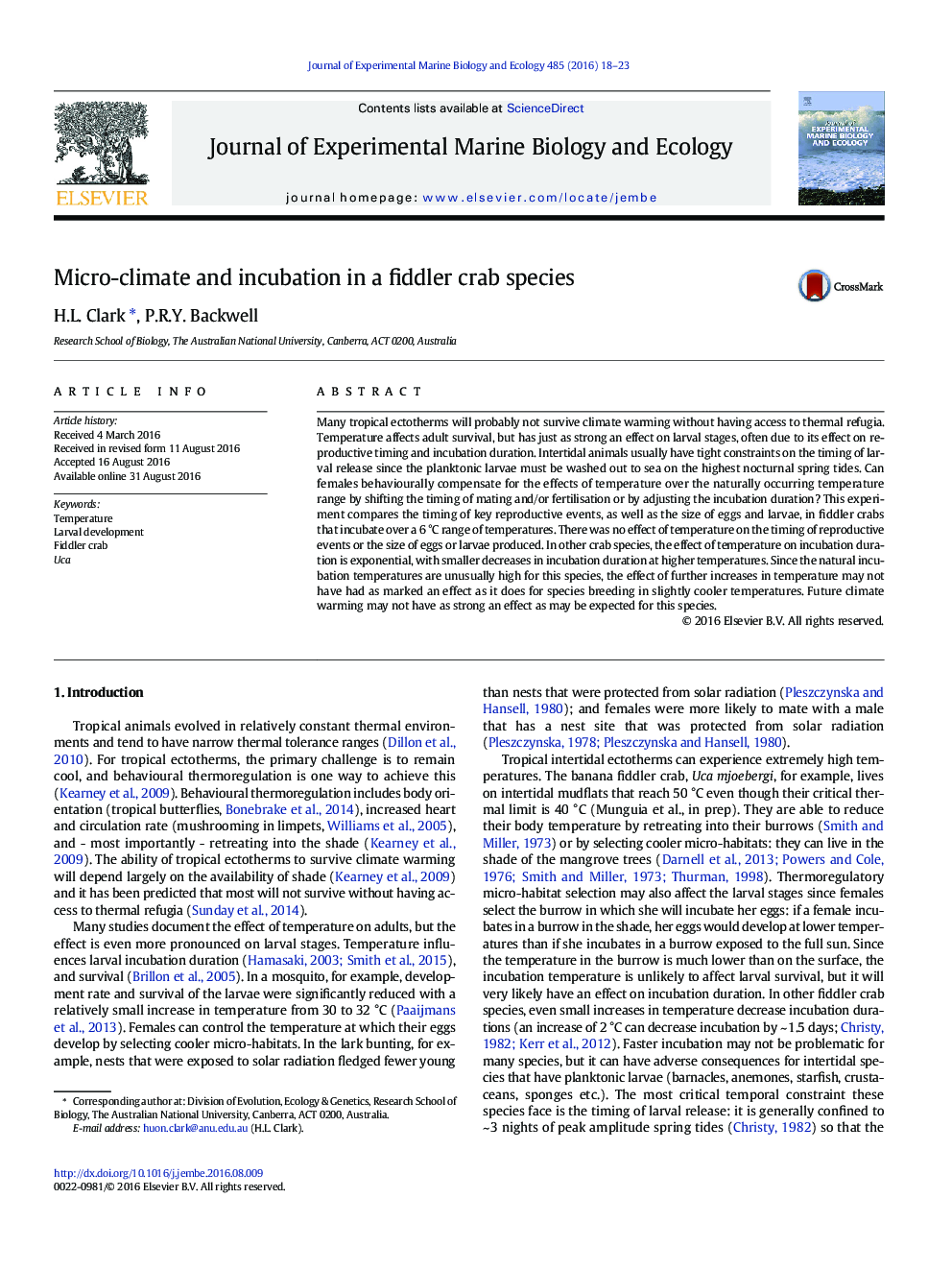| کد مقاله | کد نشریه | سال انتشار | مقاله انگلیسی | نسخه تمام متن |
|---|---|---|---|---|
| 4395187 | 1618390 | 2016 | 6 صفحه PDF | دانلود رایگان |
• Behavioural thermoregulation associated with micro-habitat selection is predicted.
• Micro-habitat temperature differences had no impact on behaviour.
• Eggs and larvae were not impacted by temperature differences due to micro-habitat.
• Mate guarding was reduced when females mated later in the mating cycle.
• Other advantages of mating in cooler, shaded habitats are discussed.
Many tropical ectotherms will probably not survive climate warming without having access to thermal refugia. Temperature affects adult survival, but has just as strong an effect on larval stages, often due to its effect on reproductive timing and incubation duration. Intertidal animals usually have tight constraints on the timing of larval release since the planktonic larvae must be washed out to sea on the highest nocturnal spring tides. Can females behaviourally compensate for the effects of temperature over the naturally occurring temperature range by shifting the timing of mating and/or fertilisation or by adjusting the incubation duration? This experiment compares the timing of key reproductive events, as well as the size of eggs and larvae, in fiddler crabs that incubate over a 6 °C range of temperatures. There was no effect of temperature on the timing of reproductive events or the size of eggs or larvae produced. In other crab species, the effect of temperature on incubation duration is exponential, with smaller decreases in incubation duration at higher temperatures. Since the natural incubation temperatures are unusually high for this species, the effect of further increases in temperature may not have had as marked an effect as it does for species breeding in slightly cooler temperatures. Future climate warming may not have as strong an effect as may be expected for this species.
Journal: Journal of Experimental Marine Biology and Ecology - Volume 485, December 2016, Pages 18–23
